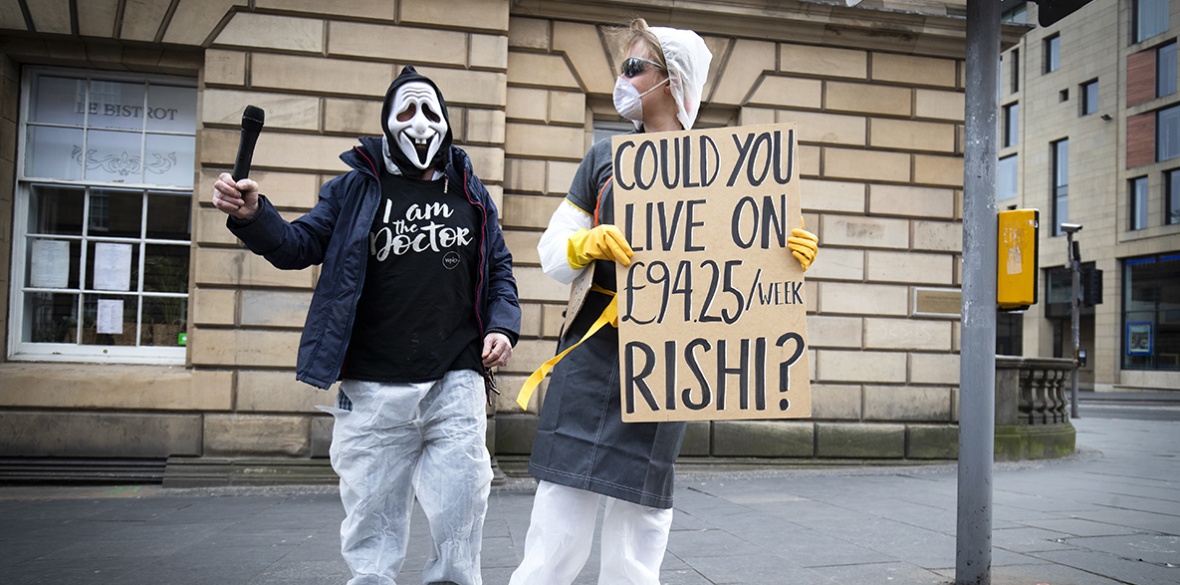This is the last article you can read this month
You can read more article this month
You can read more articles this month
Sorry your limit is up for this month
Reset on:
Please help support the Morning Star by subscribing here
BRITAIN’S miserly sick-pay system is punishing low-paid workers, the TUC has warned as a report published today reveals that the nation remains an international laggard on minimum employment standards.
Minimum-wage workers only receive a tenth of their normal earnings if they fall sick for a week, the Resolution Foundation has found.
The number of low-paid workers has fallen below 10 per cent, but the paucity of statutory sick pay is especially damaging for low earners because they are more likely to rely on it, the report says.
Britain’s unemployment rate has risen to 3.8 per cent in the three months to February: the highest since the second quarter of 2022.
About 49,000 more people were recorded as unemployed, making a total of 1.3 million.
The data from the Office for National Statistics also found that job vacancies fell by 47,000 to 1.1 million in the three months to March and wage growth continues to be outstripped by the soaring cost of living, with total pay including bonuses down by 4.1 per cent when inflation is considered.
Public-sector wage growth remains far behind the private sector, at 5.3 per cent on average excluding bonuses in the three months to February.
As a consequence, workers in this sector had a collective 348,000 days off in strike action in February, up from 210,000 in January, with more than three-fifths of those in education.
TUC general secretary Paul Nowak said that sick-pay rates are disproportionately punishing low-paid workers and leaving them without a safety net.
“We must fix our broken sick-pay system by making statutory sick pay available from day one and raising it to the level of the real living wage,” he said.
“The lack of decent sick pay cost us dear during the pandemic. The government should have learned this lesson.”
Mr Nowak said that low-paid workers remain under huge financial strain with the recent energy bill hikes and soaring food costs.
“It’s time to put an end to low-pay Britain once and for all,” he said.
“That means getting the minimum wage to £15 per hour as soon as possible.
“And it means introducing industry-wide fair pay agreements so that all workers have a minimum set of pay and rights.”
Commenting to the latest figures, Chancellor Jeremy Hunt said tackling inflation remains at the top of the government’s agenda.











